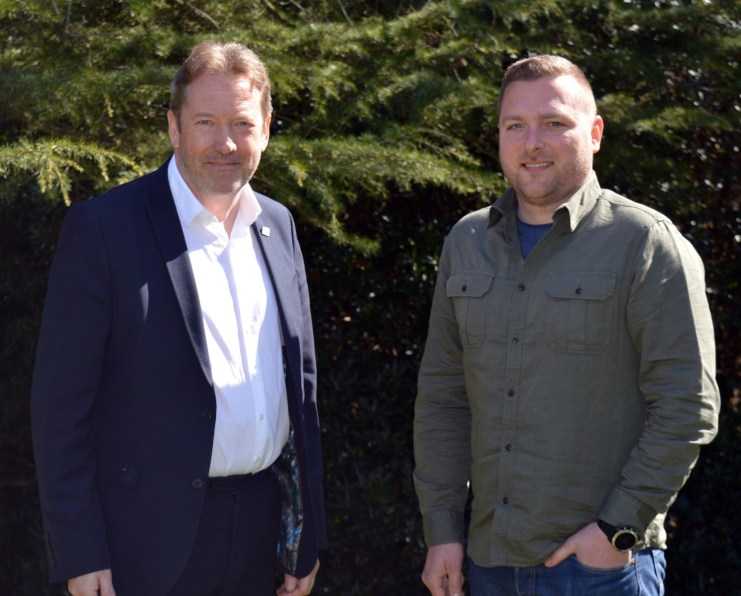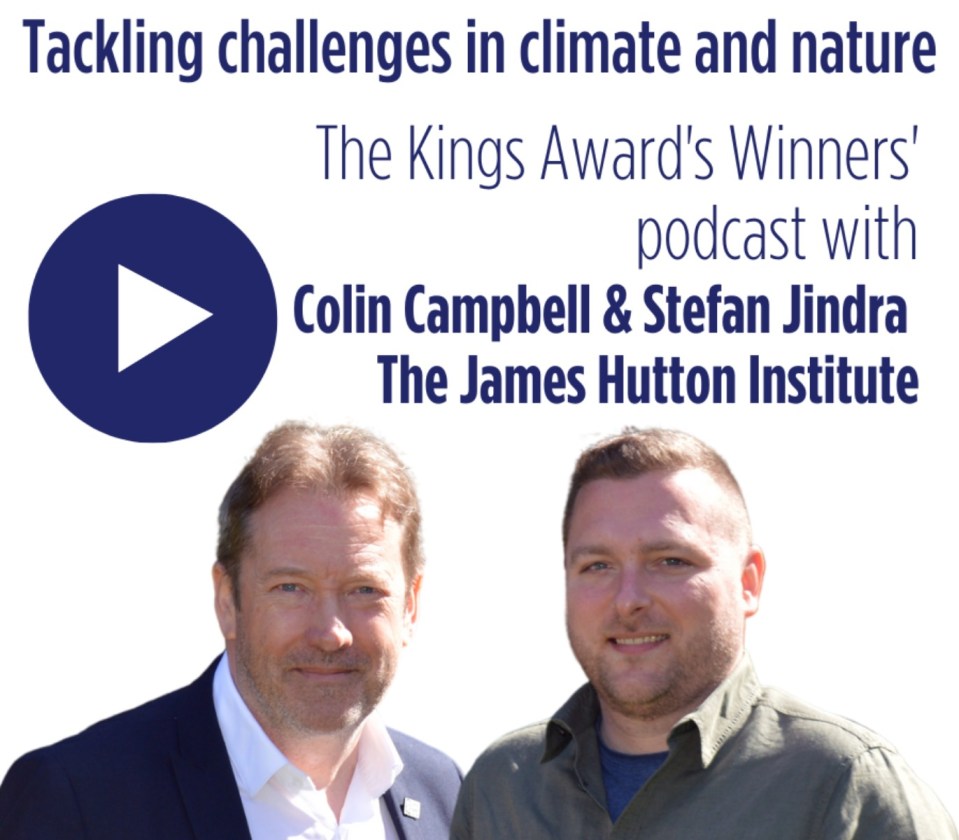Tackling challenges in climate and nature

Some of Scotland’s leading research scientists may have raised a glass of the world’s first “climate positive” gin to celebrate The James Hutton Institute receiving the King’s Award for Enterprise in Sustainable Development.
Gin produced from the humble garden pea which avoids more carbon production than it creates is just one innovation that scientists at the institute have been involved in bringing to fruition.
Chief executive Colin Campbell says, “That is what modern consumers are wanting. They want good quality food and drink which is not damaging the environment.”
The renowned institute has a special focus on everything to do with agriculture and land use – from soil, water to vegetation to crops and wildlife.
It takes its name from one of Scotland and the UK’s most famous scientists. James Hutton who was an 18th-century farmer and naturalist who is credited as being the “father of modern geology”. The Hutton employs more than 500 scientists across sites in Aberdeen, Dundee, and its three research farms. And while it is proudly Scottish it also works in 50 countries around the world including sub-Saharan Africa.

One project in Malawi and Kenya saw scientists from the Hutton introduce a Scottish potato which not only resists disease but also cooks faster, reducing the amount families have to work to collect and produce fuel for cooking.
For Colin, the institute is driven by its mission. “What we are trying to do is tackle the challenges around climate and nature crises,” he says.
“Effectively we do science around land and everything around the land and try and find more and better solutions for a more sustainable world..
“We see these as challenges, but there are also great opportunities for a better world.”
The institute does not just work with communities, policymakers and businesses to find more sustainable solutions, it is also adapting its own operations to meet sustainability and net zero goals.
Stefan Jindra, the sustainability coordinator at the institute, says: “To do this work, as an institute, means we also have a footprint and that’s something we need to address. It’s not easy.
“It has been quite a journey of discovery to actually develop our own climate action plan to hit net zero in an ambitious way.”
In addition to bringing on board renewable energy production such as solar panels and ground source heat pumps, the institute is attempting to transform one of its farms to become the first green hydrogen-powered commercially run farm in the UK.
He added: “We were quite surprised to find that 10% of our greenhouse gases were just coming from red diesel used in tractors on the farm.
“That identified an area where we should be innovating to get rid of that.”
Colin admits that the food production system is “broken” and the Hutton is working to fix it. “Farming has largely been doing what society wanted,” he says.
“Society wanted cheap food at the lowest possible price. We’ve got a new realisation that is too costly in terms of the planet. We need to find more environmentally friendly ways of farming.”
The James Hutton Institute is rare in that not many research institutes apply for the awards, but Colin said it has long admired the scheme as well as the businesses that are recognised.
“We felt we had a story to tell,” he says.
“The awards were really a great opportunity to do that because the awards are so well perceived, and you get such great profile and awareness raising.
“That was the main reason to do it – raise awareness of what we actually do in the sustainability world.”




